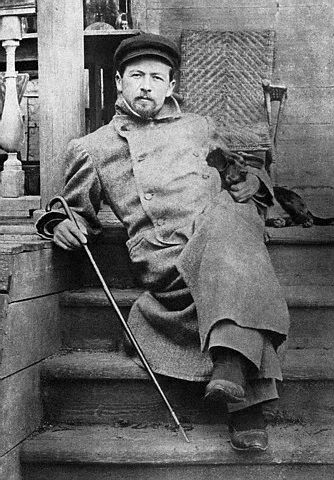Here is your Today in History -
Today is the anniversary of Thomas Crapper's death.

He died on January 17, 1910. In popular American folklore, the British Mr. Crapper was the man who invented and gave his name to the flush toilet. Unfortunately, there isn't much historical evidence to support Mr. Crapper as anything but a friendly British plumber.
I say unfortunately because the world is ambiguous enough as it is and the toilet is one of a very few things that can be counted on to acquit itself without any ambiguity. Having a toilet in the home improves our quality of life enormously; the contributions of most other appliances pale by comparison. Like other vital but widely available amenities, however, a toilet's importance is most strongly felt in its absence.
It's importance can also be appreciated when it fails to work properly. Most of us have had at least one experience where we've made a hefty contribution to a toilet only to discover afterwards that it wouldn't flush properly (or at all). Can you not remember the horror as you stared down into the bowl and wondered what to do? Can you not remember the icy panic that gripped you as you noticed that not only wouldn't the toilet flush, but that the water was rising?
(The Germans have a word for that bone-chilling dread, and it reflects poorly upon us as a nation that we do not. The Germans also have a word for the feeling you get when you notice just as you're locking your car door that the keys are still in the ignition. I don't remember either of the words, which suggest they may also have better memories. Clearly, they have more to offer the world than beer, pretzels, and Nazis.)
The importance of toilets cannot be overstated, and anything that important deserves a good legend. Thomas Crapper may not have invented the toilet, and his name may not have been the source of "crap" or "crapper," but that doesn't mean we have to tolerate the truth. We can choose to embrace the legend of Thomas Crapper. The Moron's Almanac recommends you do.
Thomas Crapper was born in 1839. He became a plumber. He invented the flush toilet, which is why people called it the "crapper," which eventually led to people calling the stuff they put into the toilet "crap."
Reject the truth and mourn the death of this great man.
Benjamin Franklin was born on January 17, 1706. The inventor of spectacles and the hundred dollar bill, Franklin was one of Washington's first celebrated womanizers to avoid indictment. One day Franklin tied a key to the string of a kite that he then flew in a thunderstorm, thus discovering Electrolysis. Franklin also invented the Post Office and can be credited with the creation of the first fully functioning disgruntled postal worker.

On January 17, 1860, Anton Chekhov was born in Taganrog, Russia. Tragically, a bureaucratic snafu at the Kremlin resulted in Chekhov's not being told he was one of the Great Russian Writers, so he practiced medicine well into middle life. By then, of course, he was almost good enough to quit practicing but he'd also made a name for himself as a writer. As a doctor and writer of comedies, Chekhov originated the saying "laughter is the best medicine" (some of his tubercular patients disagreed, but they subsequently died, proving his point). Chekhov's greatest work is "The Seagull," in which a young man kills a seagull, making his girlfriend cry and a lot of people with unpronounceable Russian names argue and wave pistols about. Chekhov should not be confused with Chekhov, who was the security officer of the USS Enterprise. Neither of them should be confused with Charo.

Also born on January 17 was Al Capone, in 1899. Chronic self-esteem problems in his early adolescence resulted in his turning to a life of crime in Chicago (where crime had at last trickled down from elected officials to the lower classes). Capone was such a successful gangster that eventually Robert DeNiro had to play him. In the end, Capone was captured by Elliot Ness and his "Untouchables," who got their name from the fact that their busy schedules prevented them from changing clothes.
On January 17, 1806, President Thomas Jefferson's grandson James Madison Randolph became the first child to be born in the White House. Sadly, no official records have been kept on the more interesting statistics of children conceived in the White House.
And so it goes.
No comments:
Post a Comment